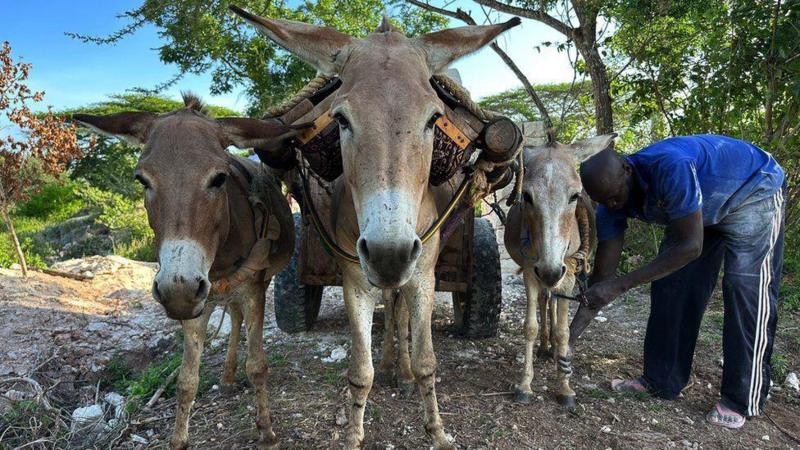
Steve was completely dependent on his donkeys to sell water and make a living. Donkeys pulled the cart in which he was carrying 20 drums that he had to distribute among all his customers. When they were stolen, they left Steve unable to work.
by BBC World
That day started like any other. In the morning he left his home on the outskirts of Nairobi and went to the countryside in search of his animals.
“I couldn’t see them,” he recalls. “I searched all day, all night and the next day.” Three days later he received a call from a friend who told him that he had found animal skeletons. “He was killed and his skin wasn’t there.”
The theft of donkeys in this manner has become common in many parts of Africa and other parts of the world where there are large populations of these working animals. Steve (and his donkey) are collateral damage of a controversial global donkey skin trade.
The origin of this market is thousands of kilometers away from Kenya. In China, traditional medicinal remedies made from gelatin made from donkey skin, known as ajiao, are in great demand.
It is believed to have properties that improve health and preserve youth. Donkey hides are boiled to extract gelatin, which is then made into powder, pills or liquid, or added to food.
Activists against the donkey skin trade say people like Steve – and the donkeys they depend on – are victims of unsustainable demand for the traditional ajiao ingredient.
In a new report, the organization Donkey Sanctuary – which has been campaigning against this trade since 2017 – estimates that at least 5.9 million donkeys are slaughtered worldwide each year to supply it. And the charity says demand is increasing, although the BBC was unable to independently verify those figures.
To continue reading, click here.

